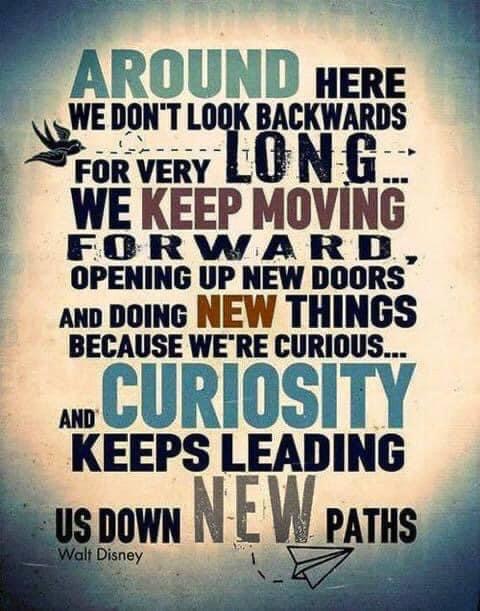
When NCFCA announced a few months back that rationalism vs. empiricism would be the LD resolution for the 2023-24 season, I was honestly a bit surprised. Even more surprising, however, was the resistance the topic was met with. Despite clearly receiving a plurality of votes, many people were disappointed in the resolution.
As someone who has coached LD for years and competed for years before that, the pushback bewildered me. What was so bad about this topic? I was even on this year’s LD resolution committee and so the research I had done on the topic was extensive. But I still wasn’t sure why people were hesitant to debate it. So I decided to get to the bottom of it, and this is what I found…
After talking to many students, parents, and coaches, I discovered the problem wasn’t that people disliked the resolution, they just disliked the narrow and academic way it was being interpreted. And this is no surprise. When you first type “rationalism vs. empiricism” into the Google search bar, you’ll be met with lengthy philosophical papers about 17th century views on human nature. The questions include, but are not limited to: where do we get our knowledge? Is our understanding purely the result of years of accumulated experience? Are we created with innate basic truths wired into our brains?
These are all interesting questions, but they aren’t the only way to think about these ideas. In fact, most modern philosophers do not adhere to an exclusive rationalist or empiricist mindset. So what are we to do? Well, let’s look more closely at the terms in the resolution.
To put it plainly, rationalism says we should approach knowledge from a logic-based standpoint, and empiricism from an experience-based one. And if we’d rather not choose one and throw away the other, what choices do we have? Perhaps we can compare them against some other external value and ask which approach would better achieve it. In other words, treat it like any other resolution.
If I had to sum up my diagnosis of the problem it would be this: don’t limit yourself. Look into the reasons someone might value rationalism or empiricism and draw a standard from this principle. You don’t have to put forth purely epistemological arguments. You can make the claim that rationalism or empiricism better upholds some real-world value like quality of life, progress, etc. Allow me to demonstrate with a quick argument in favor of empiricism. The argument is as follows:
Rationalism posits that knowledge not provable by reason alone cannot be considered as knowledge. However, forcing ourselves to adhere to this higher bar discounts any claims backed up by real world experience. Tossing all experimental knowledge out because “we can’t know for sure” flies in the face of 2000 years of science and the scientific method, hampering progress and thus quality of life.
An example of this principle in action is the work of Hungarian physician Ignaz Semmelweis. Practicing at a Vienna hospital in the 1840s, Semmelweis observed that mothers delivered by physicians had a risk of infection of up to nine times of those delivered by midwives. To determine the cause, Semmelweis tested every observable difference between the two clinics. Eventually, during one test, he noted that the physicians routinely conducted autopsies at the hospital. He instructed them to wash their hands between the activities, and immediately infection rates plummeted. However, as germ theory had yet to be discovered, Semmelweis had only the experimental data which was immediately dismissed by the medical community. It wasn’t until decades later, when Koch and Pasteur described germ theory, that physicians took these results seriously. But by that time, thousands more mothers had already died from an easily preventable infection, all because the evidence wasn’t enough for the rationalists.
With rationalism, we happily throw out any knowledge if we don’t currently understand every detail of it. This negligence leads to devastating results, paralyzing progress and damaging quality of life. In its pursuit of pure understanding, rationalism loses sight of why we seek to understand in the first place, harming real people in the process.
Obviously, this argument could be further improved upon, and there is definitely a variety of responses to this idea; but I’m sure you get the point. The resolution is broad enough for all sorts of debate styles, and every debater should choose which approach he wishes to take. So instead of adopting the first arguments you hear for and against the resolution and basing your understanding of the resolution off of those, explore your possibilities and see what works best for you.
In the end, rationalism vs empiricism is here to stay. The best debaters will be the ones who take advantage of the resolution’s scope and embrace the myriad of content available, carefully crafting cases that play to their own personal strengths and styles. This topic really has something for everyone; you just have to find it.
This year’s LD resolution has the potential to produce a great year of interesting debates. But more importantly, like always the resolution has the potential to improve your debate skills and your understanding of the world around you.
Peter is a member of the Lasting Impact! coaching team who specializes in coaching Lincoln Douglas debate and has mentored numerous students to the national level across multiple debate leagues. He will be leading an Intro to Lincoln Douglas club this fall, as well as offering private coaching for students of all levels. From novice debaters to nationally qualified competitors, you can be sure Peter has new insights and tactics that you can use to take your debate game to the next level. Sign up for his Intro to LD Club or schedule a coaching call with him today!